Indigenous Governance Database
separation of powers

'We are getting stronger'
An economic, political and cultural renaissance is underway throughout Indian Country in the United States. It’s been going on for nearly a quarter-century. Whereas in the 1980s, economic growth on Indian reservations lagged far behind the rate of the U.S. economy, through the booming 1990s and the…
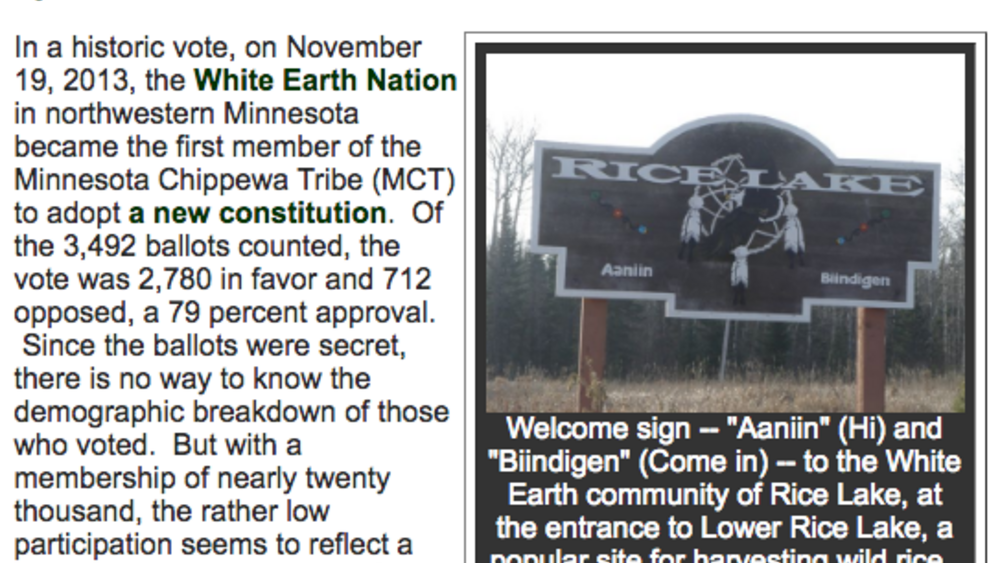
White Earth Nation Adopts New Constitution
In a historic vote, on November 19, 2013, the White Earth Nation in northwestern Minnesota became the first member of the Minnesota Chippewa Tribe (MCT) to adopt a new constitution. Of the 3,492 ballots counted, the vote was 2,780 in favor and 712 opposed, a 79 percent approval. Since the ballots…
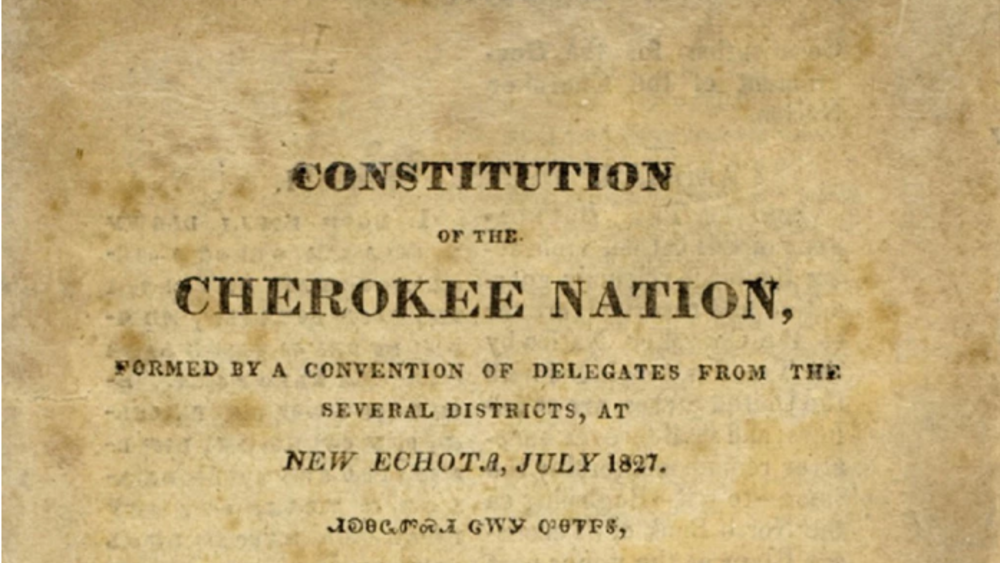
Tribal Constitutions
Modern tribal nations pass laws, exercise criminal jurisdiction, and enjoy extensive powers when it comes to self-governance and matters of sovereignty. And of 566 tribal nations, just under half have adopted written constitutions. In the American tradition, a constitution limits the power yielded…
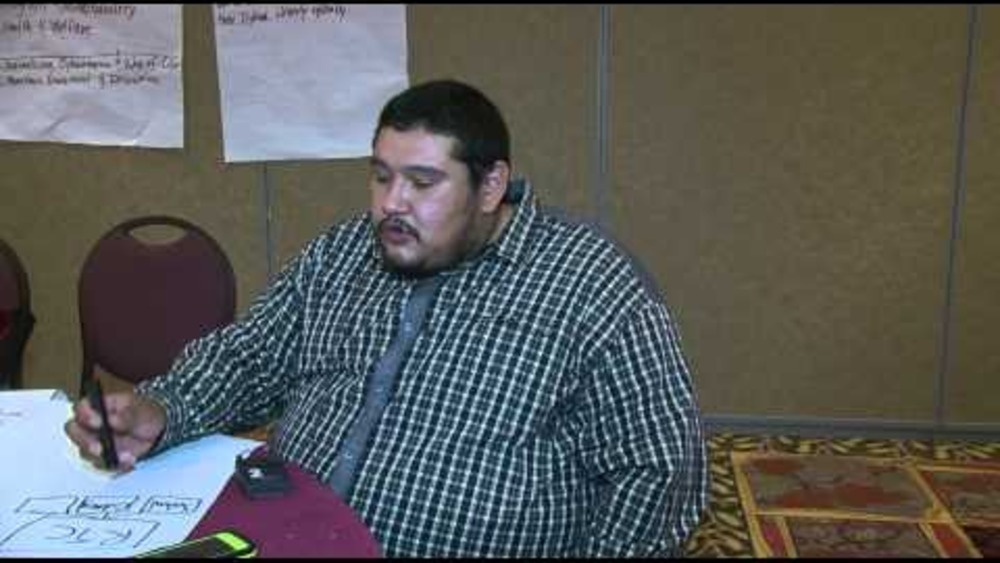
Build Our Nation Convention
A local television news program chronicles the effort of the Leech Lake Band of Ojibwe to deliberate potential changes to its constitution and system of governance.
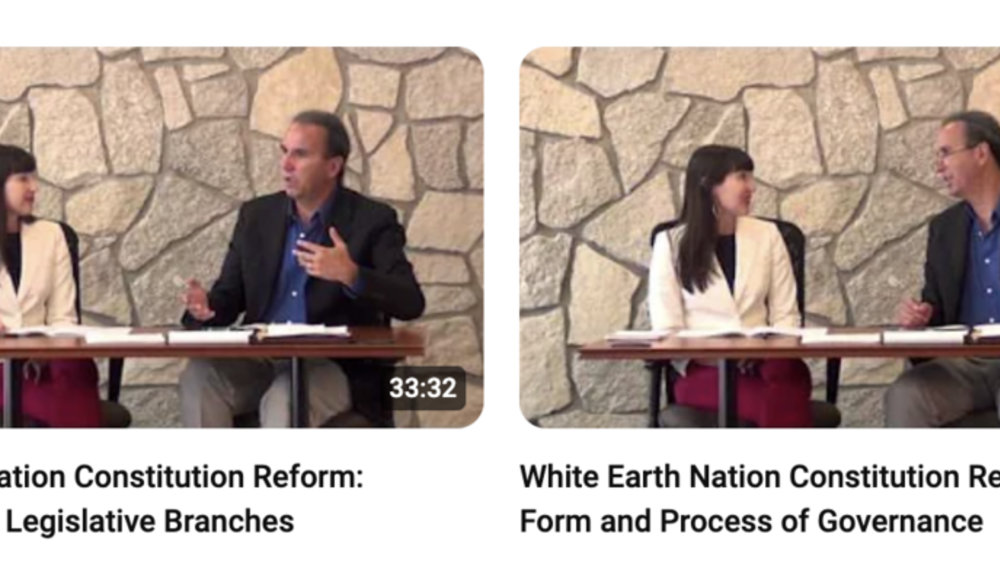
Videos: White Earth Nation Constitutional Reform
As part of its ongoing process of educating the White Earth people and others about White Earth's proposed new constitution, White Earth Nation's Constitutional Education Team produced several videos for White Earth citizens to view in order to gain a better understanding of the key governance…
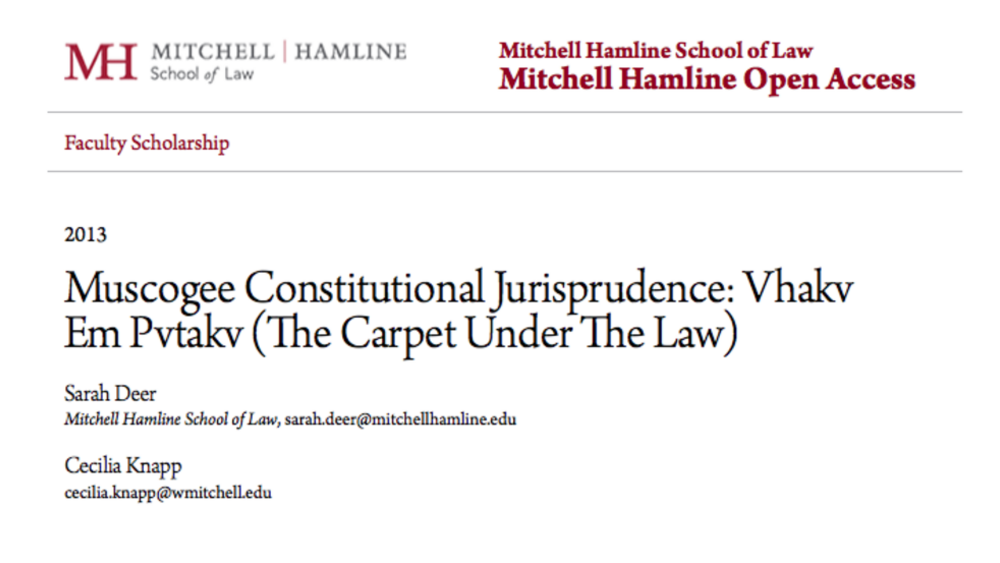
Muscogee Constitutional Jurisprudence: Vhakv Em Pvtakv (The Carpet Under The Law)
In 1974, a group of Mvskoke citizens from Oklahoma sued the federal government in federal court. Hanging in the balance was the future of Mvskoke self-determination. The plaintiffs insisted that their 1867 Constitution remained in full effect, and that they still governed themselves pursuant to it…
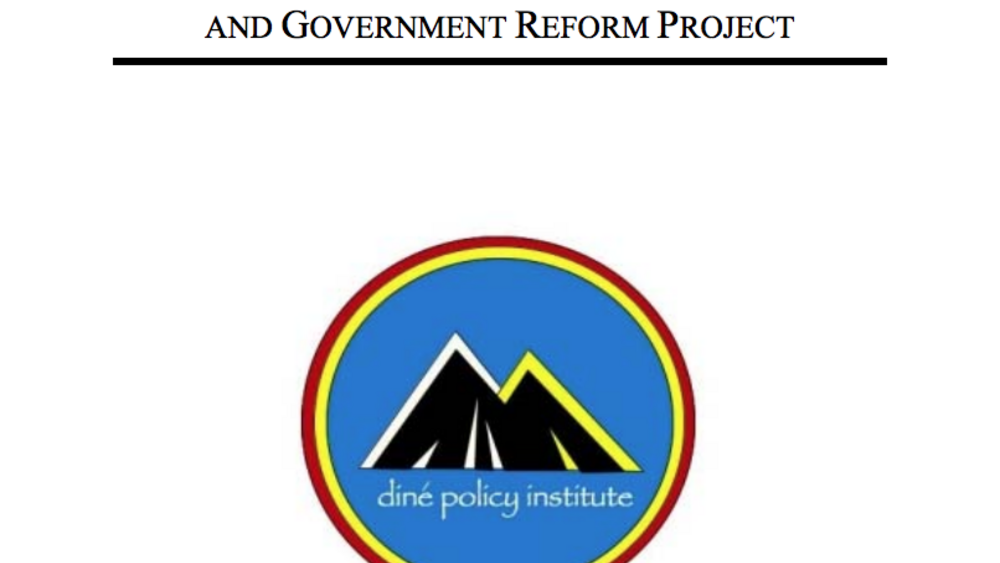
Navajo Nation Constitutional Feasibility and Government Reform Project
This paper will review three important elements related to the constitutional feasibility and government reform of the Navajo Nation. The first section will outline the foundational principles related to constitutionalism and ask whether constitionalism and the nation-state are appropriate…
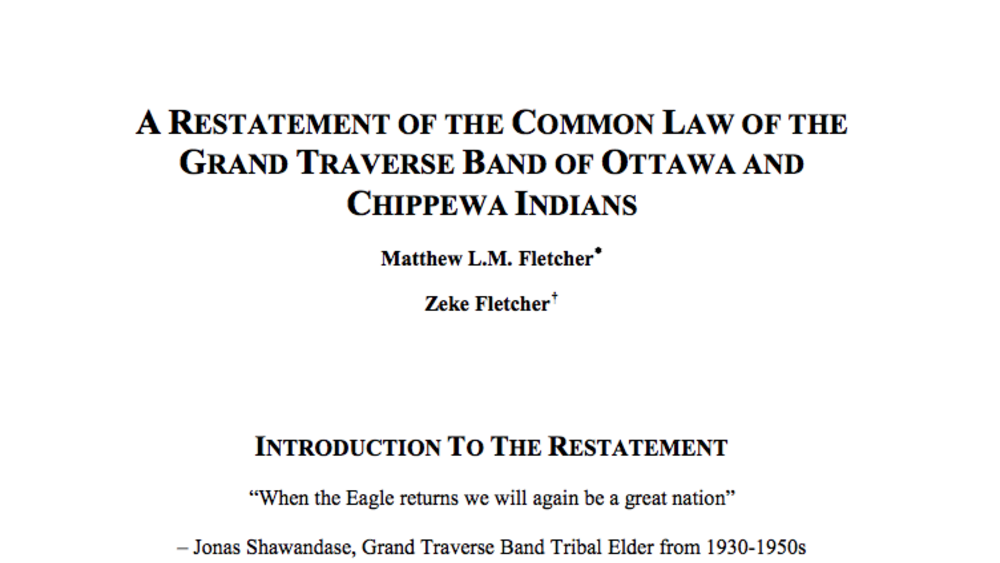
A Restatement of the Common Law of the Grand Traverse Band of Ottawa and Chippewa Indians
From 1872 until 1980 the United States government continually refused to recognize the sovereign status of the Grand Traverse Band of Ottawa and Chippewa Indians (GTB). For example, citizens of the Grand Traverse Band unsuccessfully attempted to regain this government-to-government relationship in…
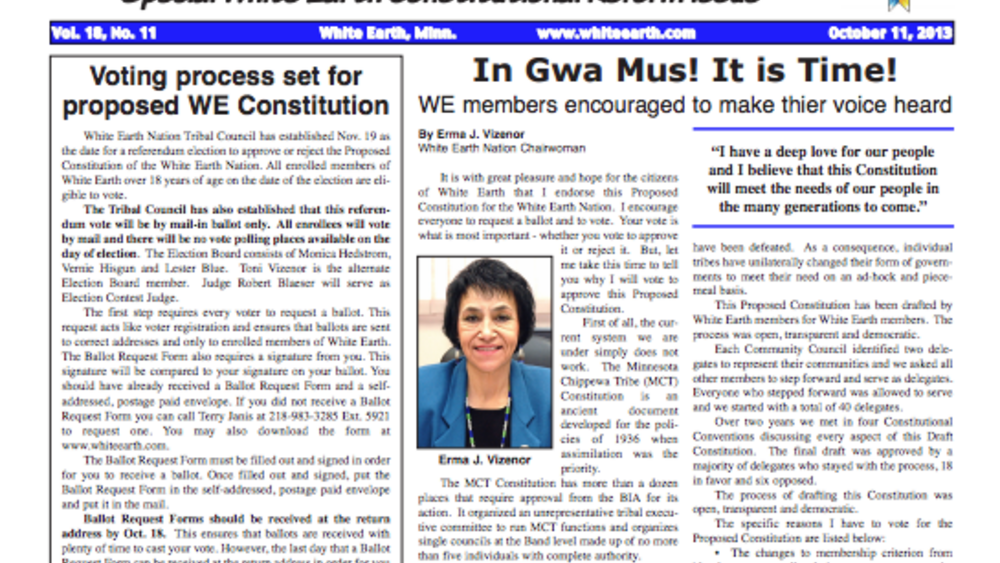
Special White Earth Constitutional Reform Issue
As the White Earth Nation prepares for a referendum election to approve or reject the proposed constitution, the Reform Committee has implemented a series of citizen engagement activities that includes a special issue of the tribal newspaper to inform citizens of the election date, proposed changes…
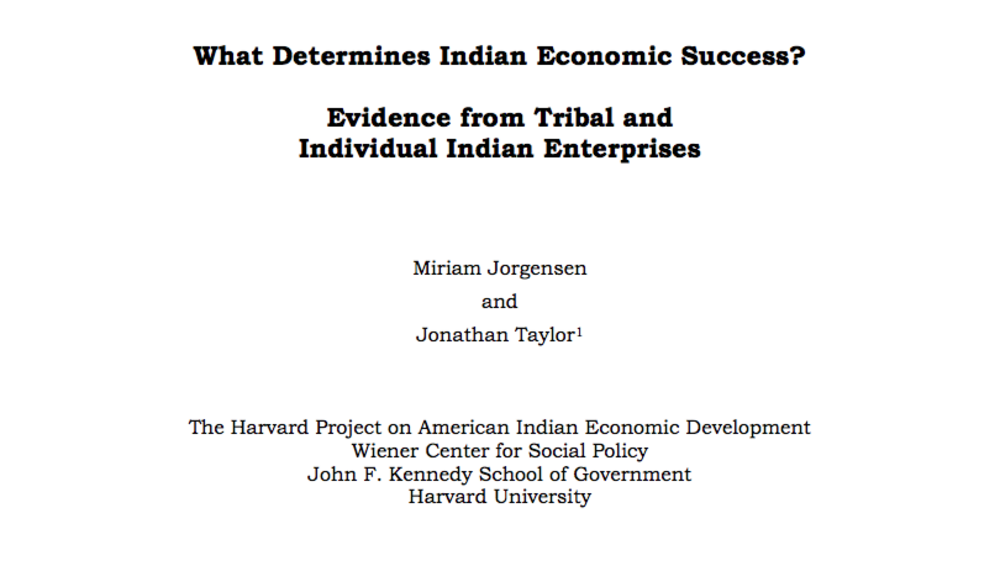
What Determines Indian Economic Success? Evidence from Tribal and Individual Indian Enterprises
Prior analysis of American Indian nations' unemployment, poverty, and growth rates indicates that poverty in Indian Country is a problem of institutions particularly political institutions, not a problem of economics per se. Using unique data on Indian-owned enterprises, this paper sheds light on…
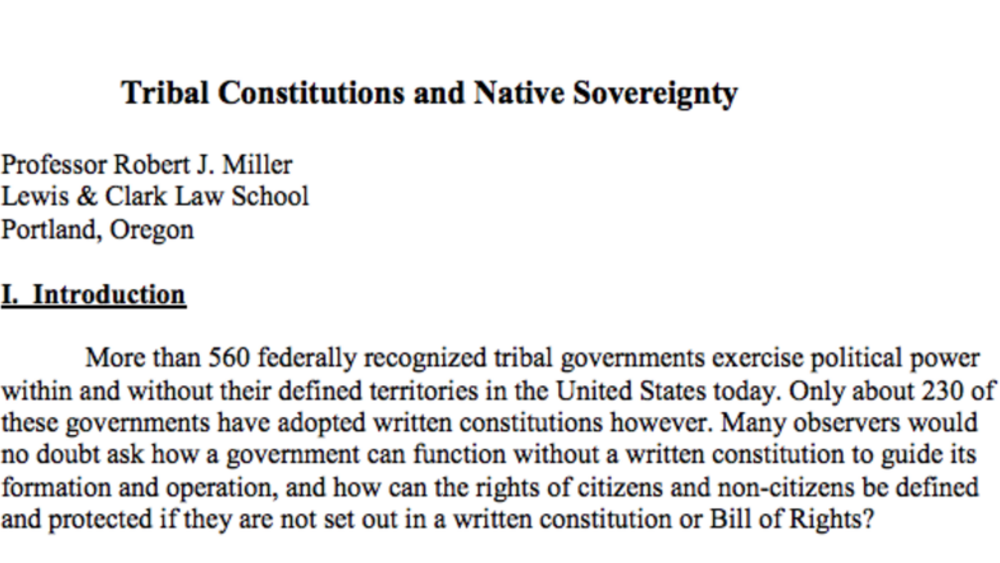
Tribal Constitutions and Native Sovereignty
More than 565 Indigenous tribal governments exercise extensive sovereign and political powers within the United States today. Only about 230 of the native communities that created these governments, however, have chosen to adopt written constitutions to define and control the political powers of…
Pagination
- First page
- …
- 1
- 2
- …
